If you’re working on your college applications, you have probably discovered that some colleges encourage you to include a supplemental resume as part of your application. Others, like Meredith, state that it’s optional, and still others tell you not to include one. (When in doubt, check with your admissions counselor.)
Having a well-written resume that effectively conveys your experiences and skills is essential for those colleges that do request one, as well as when you’re applying for jobs, internships, and even scholarships. But it can be challenging to translate your experiences and skills into words.
My part-time jobs in high school included a lot of babysitting, house-sitting, and dog-sitting, as well as helping my dad with his accounting business. During the summers, I worked for eight to ten weeks as a cabin counselor and lifeguard at the YMCA Camp Seafarer. I learned a lot from these experiences. But what is the best way to explain what I learned?
Here is a step-by-step process to write a resume that tells colleges, employers, and others about what you learned from your experiences and, just as important, what you would bring to their organizations. Meredith’s Office of Career Planning Career Workbook also provides sample resumes, cover letters, and more to support your resume writing journey.
Let’s start with my job as a summer camp counselor.
Head Counselor for 130 campers and 36 counselors for 12 weeks. (When in doubt, quantify!)
College admission offices and employers pay attention to how students have built skills in the following competencies: problem solving, oral/written communication, teamwork/collaboration, digital technology, leadership, professionalism/work ethic, career management, and global/intercultural fluency.
Here’s what it looks like if I review my experiences through the lens of these competencies.
Competency: Critical Thinking/Problem Solving
Competency: Professionalism/Work Ethic
Here’s how I might translate my experiences as a camp counselor into “resume language.”
Ask a family member or close friend who is willing to provide meaningful and realistic feedback to review your resume. Make your revisions.
While my resume has evolved and grown over the last ten years, I’ll be forever grateful for the skills that I learned as a camp counselor and babysitter. Those skills were the foundation for effective problem solving, professionalism, and much more. Your experiences have taught you similar skills – and now you know how to capture them.
Sign up for our blog and get tips to help you write a strong college application essay. You’ll also receive valuable information every week to help you with your college search, including how to tell if a school is a good fit, how to pay for college, and more!
Share This Page
Office of Admissions
1st Floor, Johnson Hall
1-800-MEREDITH
(919) 760-8581
(919) 760-2348
admissions@meredith.edu


3800 Hillsborough Street Raleigh, NC 27607-5298 | (919) 760-8600 Fax: (919) 760-8330 | © 2022 All Rights Reserved.